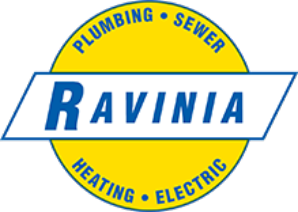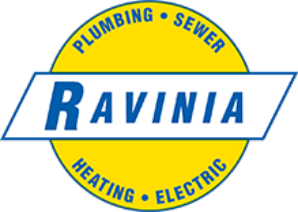
Chicago’s Northwest suburbs and North Shore area are constantly at risk of power outages due to extreme weather such as blistering heat, ice storms, and thunderstorms. Those power outages can result in flooding, spoiled food, lost data, etc.
It makes sense, therefore, to have a back up plan…in other words some type of backup generator. Our suggestion would be to make an investment in a home standby generator, as opposed to a portable generator. While standby generators are more expensive, you eliminate the risk of very expensive damage if you only have a portable generator. Here’s why:
- When the power goes out, home standby generators turn on automatically, whereas portable generators need to be turned on. So if you aren’t home when the power goes out, a portable generator won’t be much help.
- Standby generators are safer. No gasoline or power cords means reduced risk of fire, CO poisoning and electrical shock.
- Additionally, a standby generator can increase the resale value of your home.
So how do you select a standby generator. Here are some things to consider:
Cost
Know going in that whole house generator installation costs can range anywhere from $5,000 to $20,000. Size is a big determinant, but not the only one. You may also need to factor in additional costs for:
- Installing a fuel tank, propane tank, or connecting to an existing natural gas line, depending on the fuel source
- Installing a transfer switch that connects the generator to the electrical panel
- Upgrading the electrical panel
- Creating a concrete pad on which the generator will sit
- Obtaining any necessary permits
Fuel Source
You first need to determine your fuel source. There are three basic sources:
Natural Gas
This may be the best solution because the generator is hooked up to your natural gas utility line so you will be assured of never running out of fuel supply. You would just need a connection from the gas line to the generator. Natural gas can power standby generators up to 22k (note: kW are kilowatt hours, which are used to measure electrical power output. One kilowatt equals 1,000 watts.).
Liquid Propane
If you do not have a natural gas line, liquid propane can also power standby generators up to 22kW. Of course, you run the risk of running out of propane. So choose as large a tank as you can, and maybe have a second one handy in case the first one runs out (like you might do for your propane gas grill).
Diesel Fuel
Diesel fuel is used as a fuel supply for liquid-cooled whole-house generators. These types of generators will cost substantially more.
Size
The size generator you need is determined by what you want to power. Do you want to back up just major systems like the furnace, sump pump, and refrigerator, or do you want to power your entire home? Ravinia Plumbing recommends having a generator that can power your entire home so you never feel an interruption. A central air conditioner can use 2,000-4,000 watts of electricity; electric furnaces can use 5,000-25,000 watts; sump pumps can use 600-1,000 watts; and refrigerators can use 600-800 watts. Your electrical contractor can help you determine how much power you need, based on your power requirements.
Transfer Switch
Your generator needs an automatic transfer switch (ATS) that enables it to automatically turn on when there is a power failure. An automatic transfer switch is preferred because if you install a generator with a manual transfer switch, you will need to manually switch your home’s power source over to generator power when you lose grid power.
You can select a switch that provides power to all your circuits or just to some. The switch also needs to be compatible with your electric service panel’s amperage. Your electrical contractor can also help you with this.
Enclosures
You will need an enclosure to protect your standby generator outdoors. While several materials are available, aluminum and composite enclosures are recommended as they will prevent rust and corrosion.
Remote Monitoring
Many generator model options offer Wi-Fi options that will allow you or your electrical contractor to monitor the generator remotely. These models not only give you diagnostics and control from your mobile phone or tablet, but they can also be integrated with other “smart” systems in your home.
Maintenance
Make sure your generator installer offers a maintenance plan. Maintenance will lengthen the life of your generator and may be necessary to keep the warranty valid. Make sure your maintenance plan includes remote monitoring from your electrical contractor.
Ravinia Plumbing, Sewer, Heating & Electric Can Help You with Standby Generators
Ravinia Plumbing’s licensed electricians can help you select and then install the standby generator that is right for you. We also offer free first-year maintenance on the purchase of selected standby generators. We’ve been in business since 1928 (that’s 95 years!), and we’ve made a name for ourselves as one of the most trusted and reliable HVAC, plumbing, drain and sewer, and electrical companies in Chicagoland. Contact us today to schedule an appointment.



